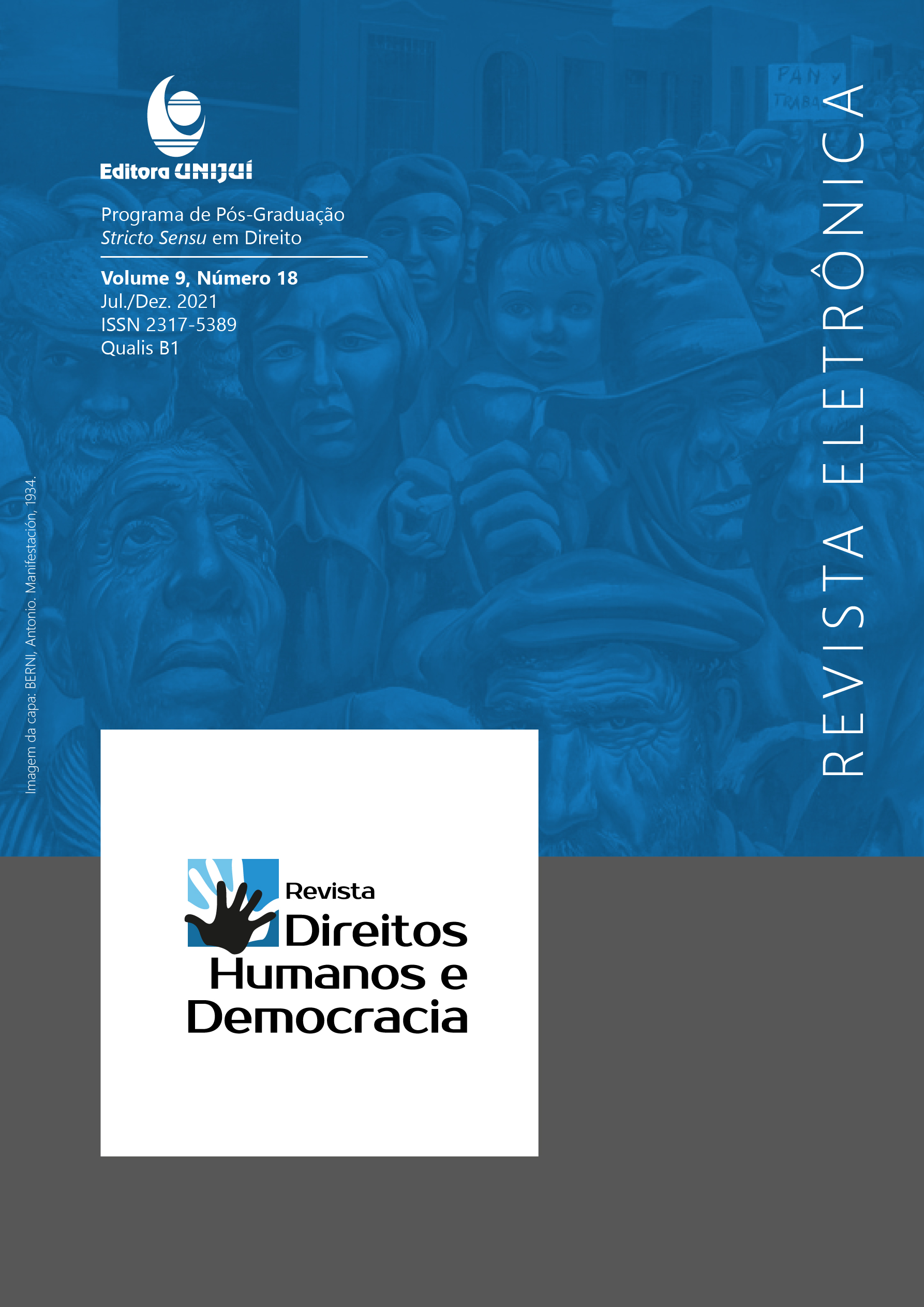EDUCAÇÃO PARA A DEMOCRACIA EM TEMPOS DITATORIAIS: ANÁLISE DA REFORMA DA CARTA DA OEA (PROTOCOLO DE BUENOS AIRES, 1967) EM SEU CONTEXTO
EDUCATION FOR DEMOCRACY IN DICTATORIAL TIMES: ANALYSIS OF THE OAS CHARTER REFORM (BUENOS AIRES PROTOCOL, 1967) IN ITS CONTEXT
DOI:
https://doi.org/10.21527/2317-5389.2021.18.10908Keywords:
Educação, Democracia, Sistema InteramericanoAbstract
O artigo tem como objetivo analisar o processo de construção normativa, no cenário de Guerra Fria, do Protocolo de Buenos Aires (1967) – que reforma a Carta da Organização dos Estados Americanos (OEA) – particularmente a introdução da noção de educação para democracia. Partindo da relação entre governos autoritários e a Organização Interamericana, a pesquisa se concentrou na atuação da Ditadura Civil-militar brasileira neste processo. Foi adotado método histórico documental, a partir de fontes primárias, como relatório, atas de reuniões e correspondências da Organização e dos representantes dos Estados, identificados a partir da sistematização dos arquivos físicos do Centro de Pesquisa e Documentação de História Contemporânea do Brasil (FGV-RJ), complementado pela revisão bibliográfica crítica da matéria. Os resultados atingidos permitem a conclusão de que a conexão entre educação e democracia, inserida na Carta da OEA por meio da atuação de governos autoritários, atende à perspectiva econômica liberal, constituindo, em última análise, uma educação para o capitalismo liberal, na luta anticomunista. Conclui-se que a inserção da democracia como objetivo educacional representa, do ponto de vista político-pedagógico, uma promessa vazia.
Downloads
Published
How to Cite
Issue
Section
License
By publishing in the Revista Direitos Humanos e Democracia, authors agree to the following terms:
Articles are licensed under the Creative Commons Atribuição 4.0 Internacional (CC BY 4.0), which allows:
Share — copy and redistribute the material in any medium or format;
Adapt — remix, transform, and build upon the material for any purpose, including commercial use.
These permissions are irrevocable, provided the following terms are respected:
Attribution — authors must be properly credited, with a link to the license and indication of any modifications made;
No additional restrictions — no legal or technological measures may be applied that restrict the use permitted by the license.
Notices:
The license does not apply to elements in the public domain or covered by legal exceptions.
The license does not grant all rights required for specific uses (e.g., image rights, privacy, or moral rights).
The journal is not responsible for opinions expressed in the articles, which remain the sole responsibility of the authors. The Editor, with the support of the Editorial Committee, reserves the right to suggest or request modifications when necessary.
Only original scientific articles presenting research results of interest, not previously published or simultaneously submitted to another journal with the same purpose, will be accepted.
References to trademarks or specific products are intended solely for identification purposes and do not imply any promotional endorsement by the authors or the journal.
License Agreement: Authors retain copyright over their articles and grant the Revista Direitos Humanos e Democracia the right of first publication.













